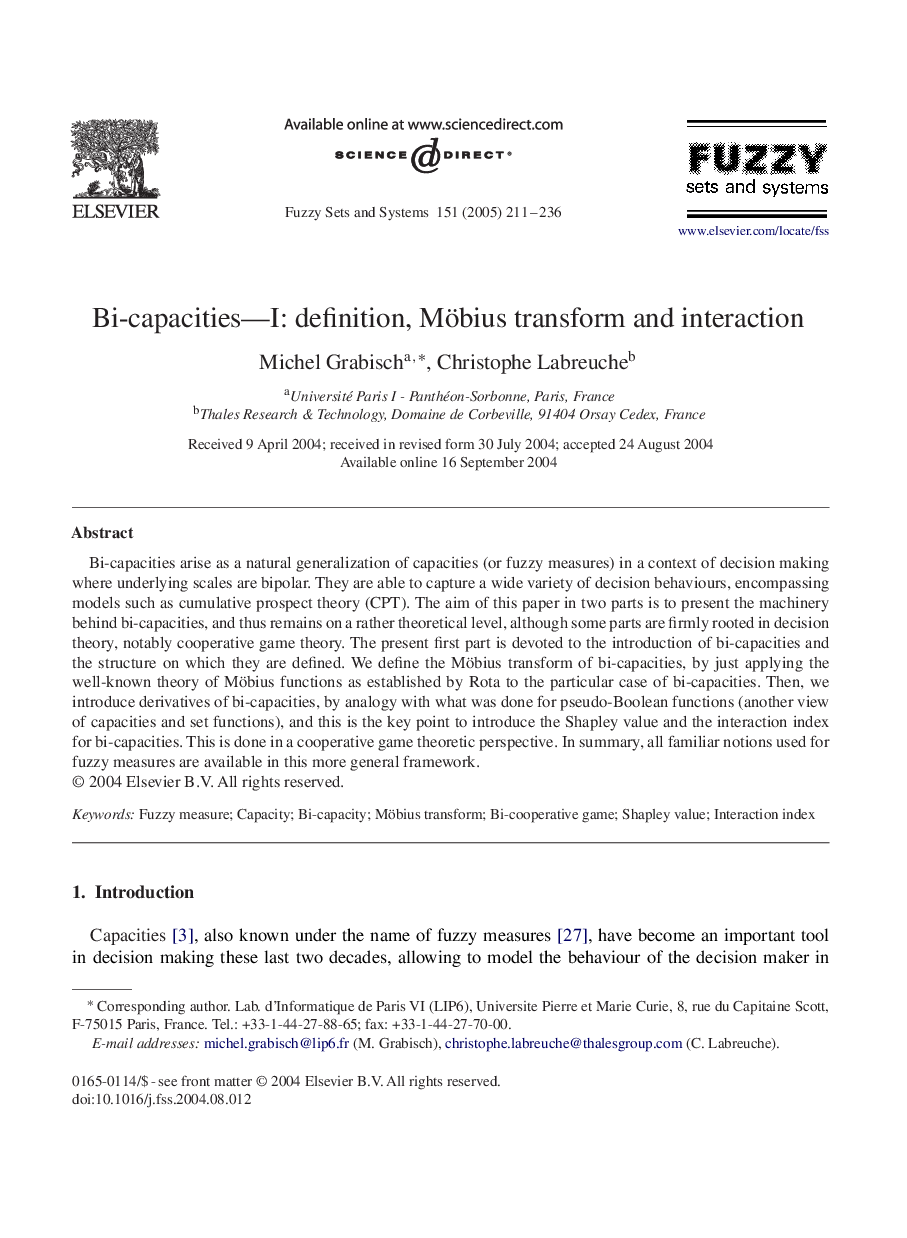| Article ID | Journal | Published Year | Pages | File Type |
|---|---|---|---|---|
| 10324406 | Fuzzy Sets and Systems | 2005 | 26 Pages |
Abstract
Bi-capacities arise as a natural generalization of capacities (or fuzzy measures) in a context of decision making where underlying scales are bipolar. They are able to capture a wide variety of decision behaviours, encompassing models such as cumulative prospect theory (CPT). The aim of this paper in two parts is to present the machinery behind bi-capacities, and thus remains on a rather theoretical level, although some parts are firmly rooted in decision theory, notably cooperative game theory. The present first part is devoted to the introduction of bi-capacities and the structure on which they are defined. We define the Möbius transform of bi-capacities, by just applying the well-known theory of Möbius functions as established by Rota to the particular case of bi-capacities. Then, we introduce derivatives of bi-capacities, by analogy with what was done for pseudo-Boolean functions (another view of capacities and set functions), and this is the key point to introduce the Shapley value and the interaction index for bi-capacities. This is done in a cooperative game theoretic perspective. In summary, all familiar notions used for fuzzy measures are available in this more general framework.
Related Topics
Physical Sciences and Engineering
Computer Science
Artificial Intelligence
Authors
Michel Grabisch, Christophe Labreuche,
